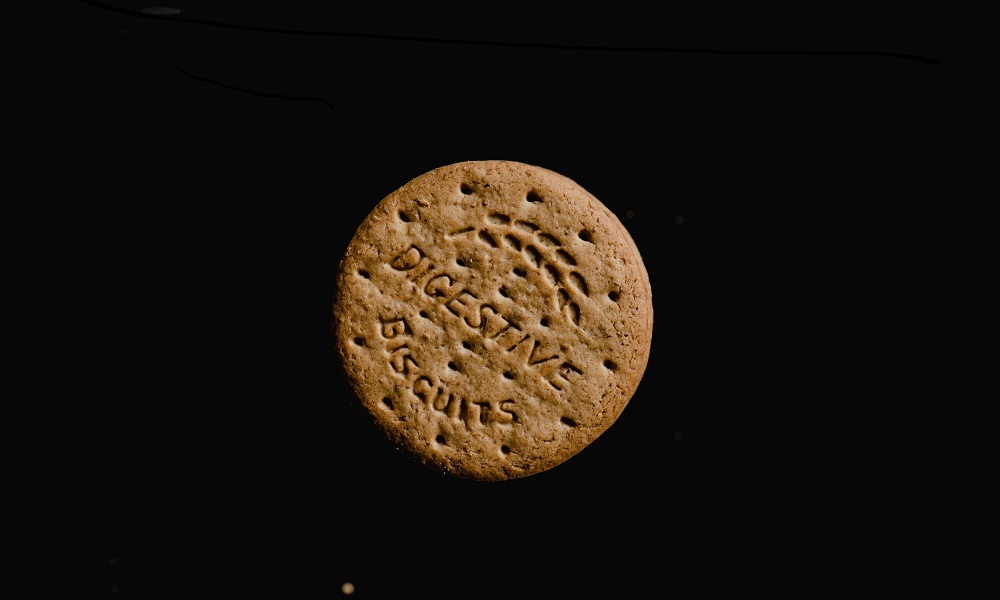The answer is yes, dogs can have digestive biscuits. Some dog owners even use them as a training treat because they are small and easy to break into pieces.
It is important to remember that not all dogs will like digestive biscuits. Some may find them too hard or dry, so it’s always best to offer a small piece first to see if your dog enjoys them.
If you do decide to give your dog digestive biscuits, make sure to monitor their intake. Like all treats, these should be given in moderation and not used as a meal replacement.
Too many digestive biscuits can cause upset stomach or other health problems for your dog. So enjoy giving your furry friend a special treat every now and then, but don’t overdo it!

What Biscuit Can I Give My Dog?
There are various dog biscuits available in the market formulated specifically for canine consumption. When choosing biscuits or treats for your dog, consider the following factors:
Ingredients: Opt for biscuits made with high-quality, natural ingredients, free from artificial additives, fillers, or excessive preservatives. Look for options that contain wholesome ingredients like meat, vegetables, fruits, or whole grains.
Size and Texture: Choose biscuits appropriate for your dog’s size and chewing habits. For smaller dogs or puppies, select smaller-sized biscuits that are easy to chew. Larger dogs may benefit from bigger or more robust biscuits that promote chewing and dental health.
Purpose: Consider the purpose of the biscuit. Some biscuits are designed for dental health, while others focus on training rewards or specific dietary needs, such as grain-free or hypoallergenic options.
Veterinarian’s Recommendation: Consult your veterinarian for recommendations based on your dog’s age, health condition, dietary restrictions, or specific nutritional needs.
Moderation: Remember that treats, including biscuits, should be given in moderation and should not replace a balanced diet. Treats should typically make up only a small portion of your dog’s daily caloric intake.
Some popular and reputable dog biscuit brands include Wellness, Blue Buffalo, Greenies, Zuke’s, and Merrick, among others.
What Happens If a Dog Eats a Chocolate Digestive Biscuit?
If a dog eats a chocolate digestive biscuit, the cocoa in the chocolate can cause vomiting, diarrhea, and dehydration.
If your dog has eaten a chocolate digestive biscuit, call your veterinarian or emergency animal hospital immediately.
Why Biscuits Should Not Be Given to Dogs?
There are many reasons why biscuits should not be given to dogs. Biscuits are often high in sugar and fat, which can cause weight gain and other health problems in dogs.
Biscuits can also be hard to digest, and may cause stomach upset or diarrhea. Some biscuits contain chocolate, which is toxic to dogs. Therefore, it is best to avoid giving your dog any type of biscuit.
Can Dogs Eat Dark Chocolate Digestives?
Yes, dogs can eat dark chocolate digestives. Many dog owners give their pets a small piece of dark chocolate as a treat. It’s important to keep in mind that chocolate is poisonous to dogs in large quantities.
It’s important to give them only a small amount. If you’re unsure about how much your dog can have, it’s best to consult with your veterinarian first.
Can Dogs Eat Crisps?
This is especially true if the chips are small and thin. To avoid this, make sure you only give your dog larger pieces of potato chips or cut them into smaller pieces yourself.
Another concern with feeding potato chips to dogs is that they are high in fat and salt. Too much fat can lead to pancreatitis in dogs, while too much salt can cause dehydration and electrolyte imbalances.
So, it’s important to limit the number of potato chips your dog eats and offer plenty of fresh water for drinking afterward.
It’s probably best to avoid feeding your dog too many processed snacks like potato chips. But if you do choose to give them as a treat every now and then, just be mindful of the potential risks involved.
Can Dogs Eat Malted Milk Biscuits?
The answer is yes – dogs can safely eat malted milk biscuits! These biscuits are made from a combination of wheat flour, butter, sugar, and malt extract, which gives them their characteristic flavor.
While most of these ingredients are safe for dogs to consume, the high sugar content is something to be aware of. Too much sugar can lead to obesity and other health problems in dogs.
It’s best to give them only occasional treats like this. If you do want to share your biscuit with your dog, make sure to break it into small pieces first.
This will help prevent them from choking on it or swallowing it whole. And as always, make sure they have plenty of fresh water available to wash it all down!
Are Digestive Biscuits Bad for You?
Digestive biscuits are made with flour, butter, sugar, and baking soda. They also usually contain molasses or honey. While they may not be the healthiest snack out there, they’re definitely not the worst.
One big benefit of digestive biscuits is that they’re high in fiber. Fiber is important for keeping your digestion regular and can even help to lower cholesterol levels.
Digestive biscuits are also high in calories and fat. So, if you’re watching your weight or trying to eat a healthy diet, you may want to limit how many you eat.
Digestive biscuits can be part of a healthy diet. Just be sure to enjoy them in moderation and pair them with other nutritious foods!
Conclusion
Yes, dogs can have digestive biscuits! Digestive biscuits are low in fat and calories and contain fiber, which can help with digestion. Just be sure to choose a biscuit that does not contain chocolate, as this can be harmful to dogs.